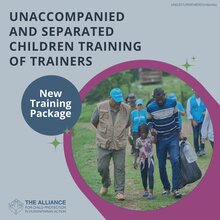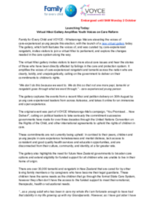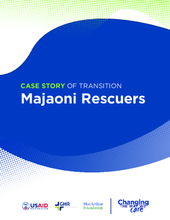Displaying 651 - 660 of 14428
El informe analiza los peligros meteorológicos más comunes que provocan el mayor número de desplazamientos: inundaciones, tormentas, sequías e incendios forestales.
Ainsi, le présent rapport analyse les aléas météorologiques les plus courants à l’origine de la majeure partie des déplacements, à savoir les inondations, les tempêtes, les sécheresses et les feux incontrôlés.
‘Children displaced in a changing climate: Preparing for a future already underway’ analyses the most common weather-related hazards that lead to the largest number of displacements: floods, storms, droughts and wildfires.
The Unaccompanied and Separated Children Training of Trainers (UASC TOT) course is designed to prepare participants to facilitate training on unaccompanied and separated children (UASC). This training reinforces participants’ understanding of the specific needs of UASC, highlight good practice in working with unaccompanied and separated children under a protection framework, and provide participants the opportunity to apply learning so they can roll out training on UASC within their own organisation and to other stakeholders.
Family for Every Child’s Virtual Gallery is dedicated to the voices of children and young people from around the world, exploring the issues that affect them and their care. They collaborated with VOYCE – Whakarongo Mai to support the “You Promised… Now Deliver!” campaign, and developed a gallery that highlights children and young people’s perspectives on care in Aotearoa via a virtual hikoi to parliament.
The purpose of these guidelines is to support practitioners to develop messaging for children and young people that clearly communicates the intention to transition and the implications for children and young people in care. The guidelines seek to address challenges so that children and young people can fully understand the implications of transition and be granted opportunities to genuinely and appropriately participate in making decisions about their lives.
This international survey is open to anyone interested in identifying the benefits and challenges of co-design, co-production and care experienced peer support in research, policy and social services practice and/or the establishment of and supports for lived experience workers.
This practice tool considers how practitioners can explore and write about identity with children and young people. It gives a short introduction to some useful concepts about identity for social care practitioners and provides guidance about how practitioners could support children’s identity development. It also includes a set of practical tips and tools to use to explore children’s identities with them.
This case story is meant to illustrate the transition process of Good Life orphanage, a charitable children’s institution based in Kilifi County, Kenya, the actors involved, the challenges and the success factors; recognizing that each transition
This case story is meant to illustrate transition process of Majaoni Rescuers, a community-based organization (CBO) in Mombasa County, Kenya, the actors involved, the challenges and the success factors; recognizing that each transition is an individual process with different starting points, different dynamics and different evolutions.









